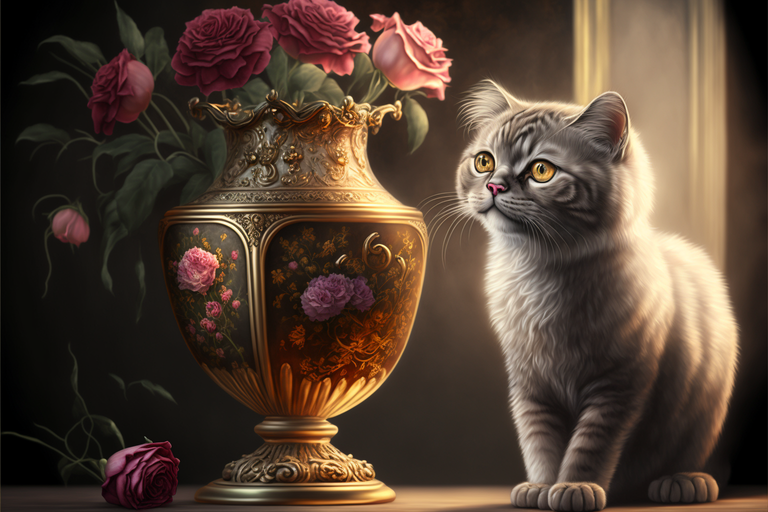
Welcome back to the third segment as I explore art styles as part of my learning more about using AI to generate art. It’s been interesting for me to learn the background of the styles and also seeing how the use of the styles impacts the generated art.
I have been using a standard prompt for each of the images you’re seeing on these posts and adding the art style to produce what you’re seeing for each styles.
Op Art
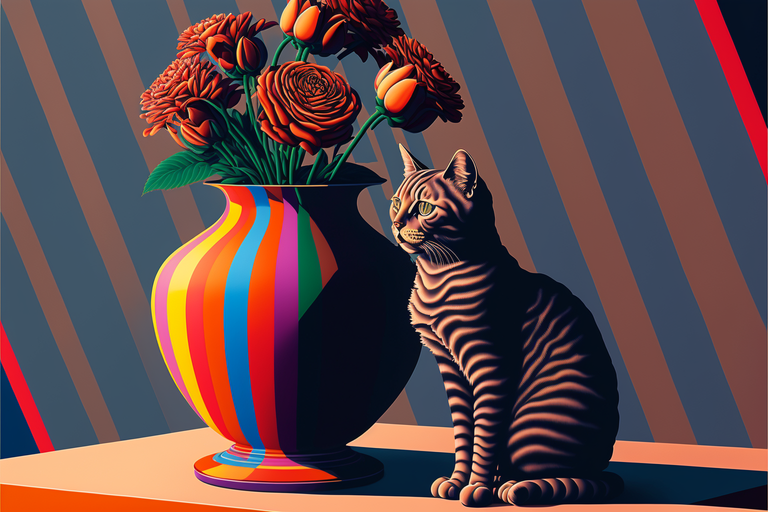
Op Art or "Optical Art" emerged in the 1960s as a reaction to the seriousness and introspection of abstract expressionism. It produced art more in tune with the fast-paced consumer-oriented society of the 1950s and 60s. The use of imagery and themes from everyday life made the art more accessible to a wider audience.
Op Art made use of geometric shapes, optical illusions, repetitive patterns and contrasting colours to create a sense of movement, vibration, depth and visual confusion. Works will often appear to be in motion even though they are static images.
Op Art had a strong influence on Pop Art, Minimalism and abstract art. It also influenced graphic design, architecture and product design.
Performance Art
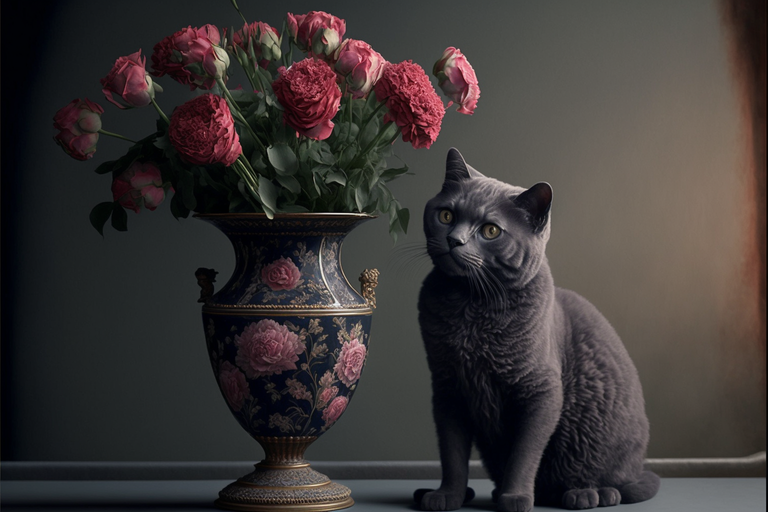
Performance Art is an art form encompassing a wide range of activities and mediums like live events, actions and happenings presented to audiences. It often blurs the boundaries between different art forms like visual art, theatre, dance and music taking place in settings like galleries, museums, public spaces or online.
Performance Art can be created by individual or groups of artists and can take many forms like live performances, installations, interventions and videos. The artist's or a model's body is often used as a medium making the art more expressive and emotional as the art was often presented live.
This art form dates back to the early 20th century but became more popular in the 60s and 70s. It's had an influence on Conceptual Art, Body Art and Feminist Art and also impacted theatre, dance and live music
Land Art
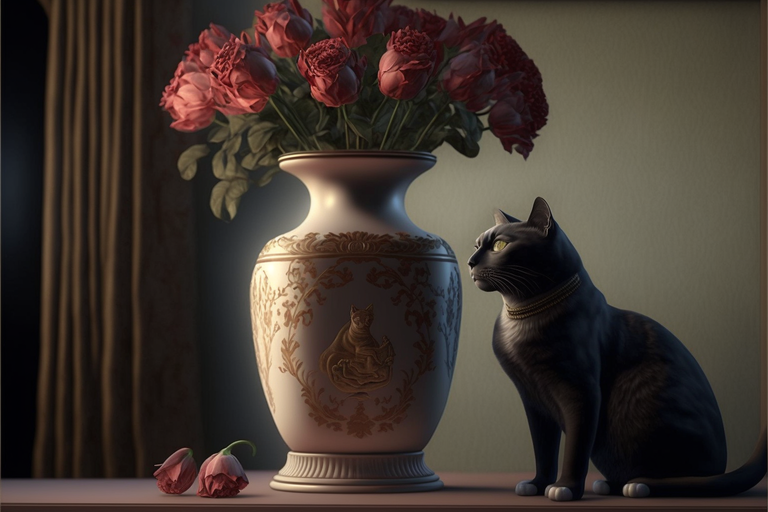
Land Art is also known as earth art or earthworks emerged in the 1960s with the use of natural materials like soil, rocks and plants to create large-scale, site-specific installations in the landscape. It emphasizes the relationship between art and nature using mediums like natural materials and landscape.
Land Art is a way of making art that was more expressive and emotional to convey the inner emotions and feelings of the artist. The works are often intentionally temporary, and are meant to be experienced in the context of the natural environment.
Land Art emerged as a reaction to the commercialization and commodification of art. It's a way of making art more in tune with environmental and political changes of the time. It's influence was felt on movements and styles like Minimalism, Conceptual art, and Environmental art. It's also impacted architecture, design and photography.
Contemporary Art
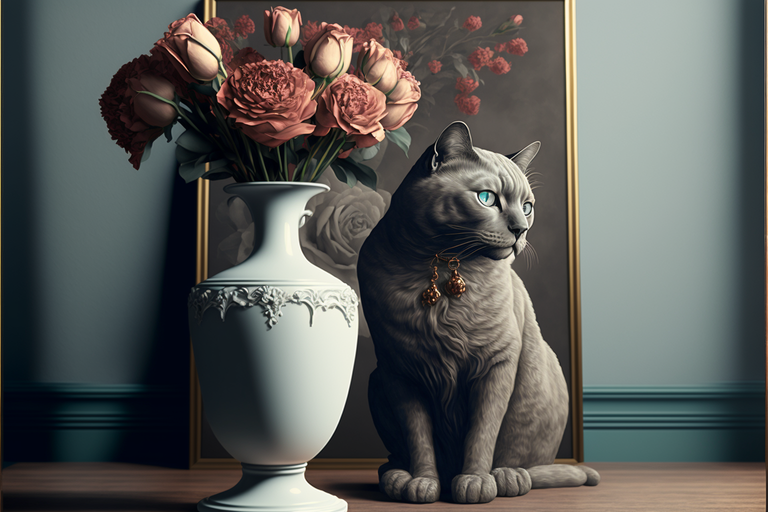
Contemporary Art refers to art produced in the present time, typically post-World War II art. It's not a specific art movement or style but it does often work to address social, political, cultural and economic issues thru the art.
Contemporary Art encompasses a wide range of styles, mediums, and forms. It can include traditional art forms such as painting and sculpture, as well as new and emerging forms such as installation, video, and digital art.
Contemporary Art artists often push the boundaries of traditional art forms, as they explore new and innovative ways of creating and presenting art. It's influenced a wide range of other art movements and styles, as it continues to evolve and change with new technologies and media emerge into use.
Renaissance
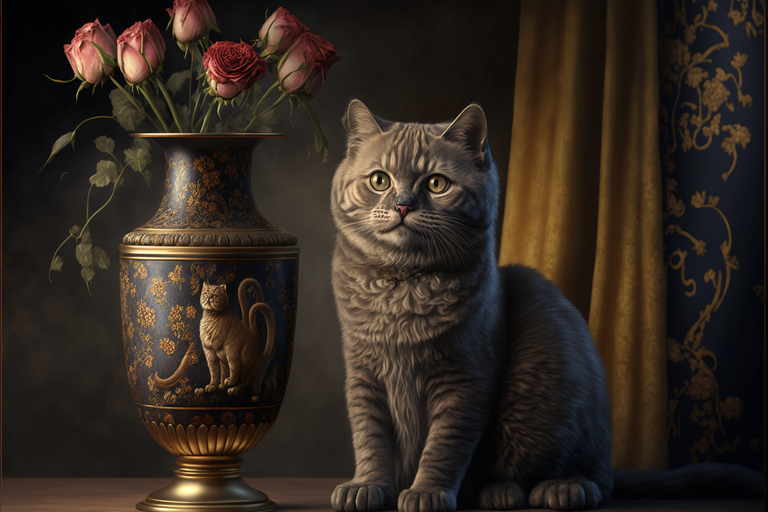
Renaissance Art emerged in 14th century Italy. The Renaissance was a time of great cultural, scientific and artistic revival. Its art reflected the new ideals of humanism, emphasizing the importance of the individual and the natural world. The art itself focused on realism, classical influences, and the use of linear perspective
Renaissance artists were not just producing art for the Church but also for the wealthy patrons and others, this gave them the freedom to explore new styles and techniques.
Renaissance Art often used techniques like linear perspective and realistic representation with an attention to detail to create a sense of depth and realism that conveyed a sense of emotion and movement.
The work was heavily influenced by classical art and literature, and many of their works depict scenes from mythology and ancient history. Renaissance Art marked the beginning of the separation of painting, sculpture, and architecture as individual art forms.
It's influence was felt on other art movements and styles, including Baroque, Mannerism and later movements like Romanticism and Realism. It also influenced literature, music, and science.
Baroque
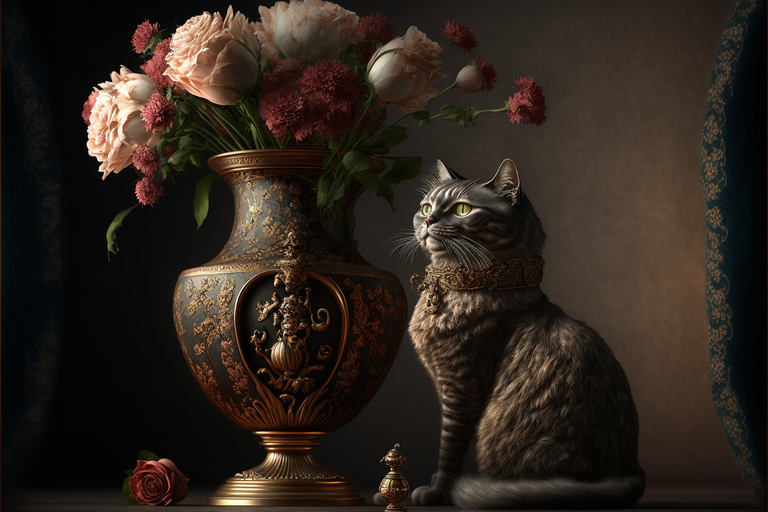
Renaissance Art emerged in 14th century Italy. The Renaissance was a time of great cultural, scientific and artistic revival. Its art reflected the new ideals of humanism, emphasizing the importance of the individual and the natural world. The art itself focused on realism, classical influences, and the use of linear perspective
Renaissance artists were not just producing art for the Church but also for the wealthy patrons and others, this gave them the freedom to explore new styles and techniques.
Renaissance Art often used techniques like linear perspective and realistic representation with an attention to detail to create a sense of depth and realism that conveyed a sense of emotion and movement.
The work was heavily influenced by classical art and literature, and many of their works depict scenes from mythology and ancient history. Renaissance Art marked the beginning of the separation of painting, sculpture, and architecture as individual art forms.
It's influence was felt on other art movements and styles, including Baroque, Mannerism and later movements like Romanticism and Realism. It also influenced literature, music, and science.
————————
If you’ve missed the first two parts you can find them here and here.
————————————
Shadowspub writes on a variety of subjects as she pursues her passion for learning. She also writes on other platforms and enjoys creating books you use like journals, notebooks, coloring books etc.
NOTE: unless otherwise stated, all images are the author’s

How to Connect With ShadowsPub:
Twitter: @shadowspub
Instagram: shadowspublishing
Medium: @shadowspublishing
Publishing Website: Shadows Publishing
Nicheless Website: Nicheless & Loving It
(podcast, subscriptions for: Prompt A Day, PYPT Reminder & Newsletter)
Pimp Your Post Thursday (PYPT): join us on the DreemPort Discord12pm EST Thursdays
—————————————-
Get eyes on your content and meet new friends. Join DreemPort.
@tipu curate
Upvoted 👌 (Mana: 11/31) Liquid rewards.
Congratulations @shadowspub! You have completed the following achievement on the Hive blockchain And have been rewarded with New badge(s)
Your next target is to reach 1300 posts.
You can view your badges on your board and compare yourself to others in the Ranking
If you no longer want to receive notifications, reply to this comment with the word
STOPTo support your work, I also upvoted your post!
Check out our last posts: